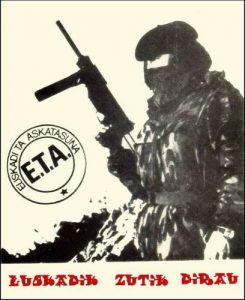Abstract
The literature on nationalism and violence has paid little attention to the role played by violence in the process of making and remaking national polities. This paper will explore political violence as a generative force of nationalism and a useful tool in the process of nationalization. First, I will discuss new theoretical approaches to the relationship between nationalism and violence. Then I will compare two case studies in twentieth-century Spain: the Francoist State, 1936-1975 and the Basque Autonomous Community, 1977-2011. The comparison will allow for a revision of a number of concepts, including mass violence, genocide, political violence, terrorism and ethno-nationalist violence. By analyzing the complex relationship between violence and nationalization in Spain, this paper sheds light on the current disputes about collective memory and the narrations of the Spanish nation(s).
Biography
Fernando Molina is a Senior Research Fellow at the Department of Contemporary History at the University of the Basque Country. He specializes on the study of nationalism and political violence. He has published, among other books, El peso de la identidad (Madrid, 2015); Los caminos de la nación (Granada, 2016) and ETA’s Terrorist Campaign (London-New York, 2017).

